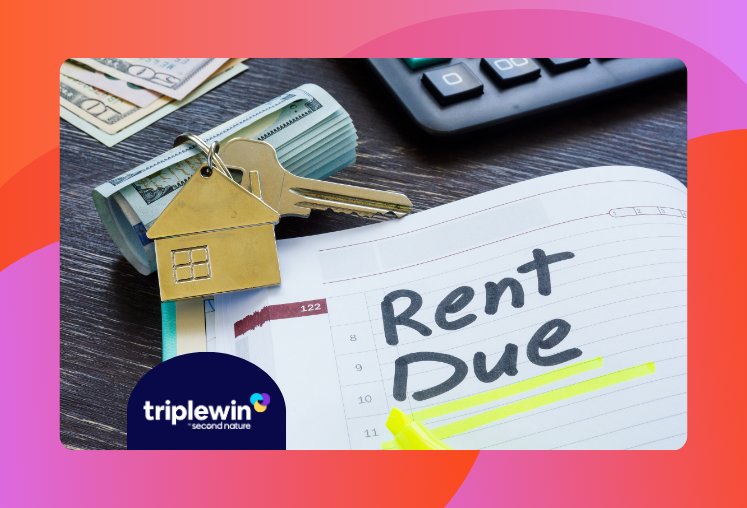What is an experience economy and why is it relevant to single family rental property management?
There are 3 questions driving the future of value creation in professional property management.
- How do we create an experience so good, residents never want to leave?
- How do we create an experience so good, investors never want to sell?
- How do we create an experience so good, talent wants to be in this business forever?
The word experience is key. Whoever creates the best experiences will create the most economic value as the service side of property management becomes commoditized.
In Joe Pine’s book, The Experience Economy, he reveals a critical insight that transcends real estate to other industries. It’s about the staging of value creation through the lens of commoditization and customization.
In today’s highly competitive world, companies often focus solely on process improvement, optimization, cost-cutting, and driving efficiencies. While these are critical to remain competitive and improve margins, they are the playbook of a game that ends with operating a low-margin commoditized business. Some business leaders even talk about their industries being commoditized as a badge of honor.
Interestingly enough, that thinking is self-fulfilling; by not focusing on creating higher-value offerings, they are riding the train to commoditization.History contains many examples of innovations so groundbreaking they captivated people and led the way for economic prosperity. Artificial light, telecommunications, automobiles, to name a few. While these were all once higher-margin innovative offerings and the most attractive businesses to be in, they have grown to be stale and competitive industries, forced to compete on price, leading to lower profits and company value relative to size.
For example, Ford and GM, once praised as innovators in manufacturing goods, are now in a sea of competition and worth a mere 0.4x revenue at the time of this writing.
The Experience Economy dives into these macroeconomic trends and shows the change over time in their Progression of Economic Value chart. The macroeconomic trends demonstrate how we have gone from extracting commodities to making goods to delivering services to, finally, staging experiences as the current primary driver of economic growth. One of the many great examples included in the book is the staging around birthday party: A birthday party at home that consisted of a cake and celebration requires the commodities, flour, sugar, butter etc.. to make at a cost of <$0.10. Then companies began offering “cake mix” which was more convenient that cost $1.00, followed by bakeries making the whole cake as a service for $15, and now, people outsource the whole birthday party to a venue like Dave & Busters or a party planner. There’s a party, invitations, custom napkins, entertainment, and yes, a cake is part of it. So someone can be in the pennies for cake materials business, the quarters for cake mix product business, dollars for a fully-made cake, or thousands of dollars for a full birthday or wedding or celebration event experience. That’s the commoditization to customization journey.

Many property managers have correctly said, “We’re in the service business.” However, looking at where the most economic value will be created, today’s industry leaders have already started the shift to “We’re in the experience business.” They’re seeing different opportunities, which lead them to different choices that yield different results, and they find themselves in differentiated businesses.
Professional property management is fast approaching a “hotelification” phase, where premium amenities and hospitality-grade service are creating a rental experience so good that more people choose the rental experience for longer periods of time. Hotel staff are called upon to enhance the experience of a proposal, an anniversary, a birthday celebration. And the great ones answer and emotionally connect. They are “moment-makers'' who create enduring loyalty, allowing them to drive more economic value.
Consider how many of life’s meaningful and memorable moments are created at home. But how many people can name the owner of the apartment they lived in as easily as the hotel that elevated that special moment?
So what are property management leaders doing today, and talking about doing tomorrow to create the #1 resident experience?
The occupied experience is being defined by the “Resident Benefits Package”. From conference events like IMN, to NARPM, to PM XChange and PM Grow, it is hard to find an agenda that doesn’t include it. It’s a hot topic. Property managers and service providers have figured out how to turn persistent problems into a suite of proactive solutions that residents will pay for.
Some of these services have been amenitized, like 24/7 maintenance coordination, vetted vendor networks, home-buying assistance, multiple payment options, and more that have become standard practice in professional firms.
But there’s also a list of emergent ancillary services that are making their way from initial adoption to the definitive standard in the professional management experience.
Move-in Concierge - Getting utilities and home services set up is a hassle for residents. Instead of 4 phone calls to get water, energy, internet, and TV services set up after researching who services the address, now residents can make one phone call and speak to a concierge who has looked up the discounts and promotions available and can confidently guide them through the process. In the future, this service likely expands to moving itself, deals on furniture with offers to assemble it, coordinated home cleaning, and landscaping.
Air Filter Delivery - HVAC has been the #1 maintenance line item in SFR in most markets, second to plumbing in more temperate markets. And it has been a persistent problem of getting residents to change their filters on time. A 2020 HVAC Data Study that looked at over 7,900 SFRs in 4 markets, over an 18 month period, showed a 38% reduction when comparing a scheduled filter delivery program over the status quo of leaving a stack at move-in or hoping the resident remembers to go to the store. Every 2-3 months, residents are getting a box on their doorstep, where convenience makes it easier to do the right thing than to forget or ignore the responsibility entirely.
Credit Building - every month that residents are paying rent on time, they get the benefit of that activity contributing to their credit file. A Goldman Sachs study showed a 42 point average increase in credit scores over 4 months. The credit bureaus also allow for up to 24 months at the same address to be back-reported which can provide a meaningful boost. Property managers are able to incentivize on-time rent payment and help residents build their credit over the course of their lease.
Rewards - Residents are used to getting points and rewards for their loyalty with hotels, airlines, their credit cards… why not on their largest monthly expense? And while a rewards platform offers residents a unique benefit and savings on both everyday and luxury items, it is an incentive platform for the property manager. Rewards points allocated for on time payments, timely renewals, and ticky-tack maintenance like flipping a circuit breaker or resetting a GFI outlet mean more of the resident behaviors property managers want. Leveraging it for concessions and leasing incentives also means savings over cash offers, or higher perceived value at the same cash expense.
Washer/Dryer Rental - Some properties may have these appliances installed or the residents come with their own, but we’ve seen the impact on prospective applicants choosing homes due the convenience of having the washer/dryer available.
Smart Home - From thermostats to keyless entry to water leak detectors and more, there is hardware and technology alike growing more popular each year. Not only are they appreciated by residents, but they provide critical operational efficiencies to the management team.
In addition to these, there are many more innovations that are going to dramatically improve the experience of renting and raise the bar on what’s expected. The companies that architect the best experiences will be the market leaders and capture the most upside in this future economic environment. We constantly are asking ourselves, what might the professional property management industry look like in 2030? The shift from transactional services to transformational experiences is one of the surest bets on the table. The big winners will be the players who embrace the new discipline of experience design. We believe the future belongs to the professionals, the trusted, the innovative… the people dedicated to changing the way people live forever.




